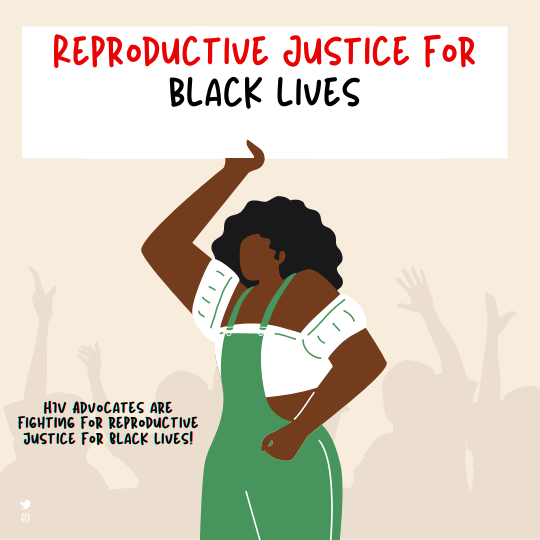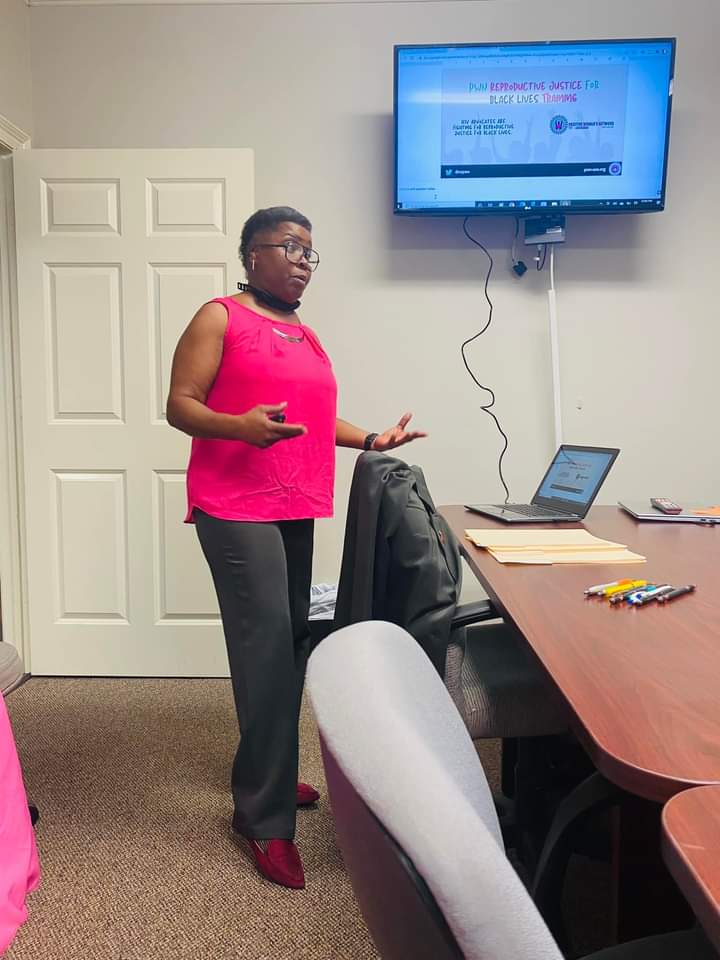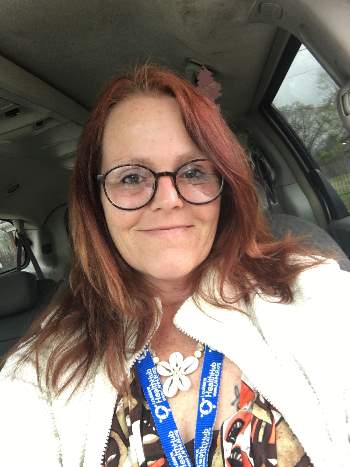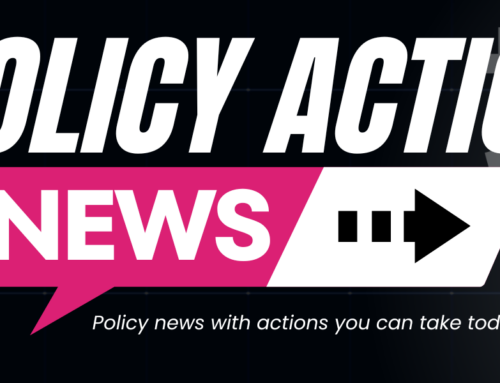 In the United States, and especially in the South, Black and brown people make up the majority of new HIV diagnoses. Black women and women of color carry the burden of HIV diagnoses in America – a country with a history of reproductive oppression. Reproductive justice is central to our work and to our well-being, yet our federal HIV strategies rarely mention the sexual and reproductive health and rights of people already living with HIV.
In the United States, and especially in the South, Black and brown people make up the majority of new HIV diagnoses. Black women and women of color carry the burden of HIV diagnoses in America – a country with a history of reproductive oppression. Reproductive justice is central to our work and to our well-being, yet our federal HIV strategies rarely mention the sexual and reproductive health and rights of people already living with HIV.
In 2021, Positive Women’s Network-USA launched the PWN Reproductive Justice for Black Lives (PWN RJ4BL) Ambassador Program in partnership with our PWN Alabama and Louisiana chapters. RJ4BL was created to educate people living with HIV and allies about the intersection of reproductive justice and HIV, especially how to use a reproductive justice framework and analysis approach in their HIV advocacy. The goal is to increase the number of HIV advocates, especially in Alabama and Louisiana, who use a reproductive justice analysis and approach in HIV advocacy.

PWN member Millicent Foster presenting a Reproductive Justice training
Millicent Foster has been a PWN Louisiana chapter member since 2016 and currently serves as a Reproductive Justice for Black Lives Program Ambassador. If you don’t know what reproductive justice is, Millicent shares an easy-to-understand explanation: “Reproductive justice is about the right to control what does and does not happen to our body. This includes access to safe, legal, and affordable abortion without barriers. It also includes much more, such as our human rights.”
Since 2021, ambassadors have been reaching out to offer trainings’ for community-based organizations (CBOs) and service agencies to educate staff through the intersections of reproductive justice and HIV care to better serve the health of Black women and women of color.
And as for why a reproductive justice framework is so critical for people living with HIV, she says, “Women and trans folks living with HIV experienced more discrimination, bias, and stigma in all healthcare settings, including sexual and reproductive health care. Reproductive justice for women and trans folks living with HIV would mean we have the resources and full human rights necessary to live long, healthy, and dignified lives. Free from stigma, violence, and discrimination.”
For Millicent, fighting for the full spectrum of sexual and reproductive health and rights without barriers is critical, and a big reason why the Reproductive Justice for Black Lives program is essential to Louisiana. “For a woman living with HIV, especially here, many doctors don’t offer options. Some doctors will tell you straight up, ‘you have to abort the baby. If you have this baby, this baby’s gonna contract HIV when it’s delivered.’ No, it will not. Or, they say, ‘you can have this baby, but you’re going to have to have a C section. You can’t have a vaginal birth.’ So you’re making a decision for me. You’re not letting me make a decision.”
 Originally from Buffalo, New York, fellow RJ4BL Ambassador Sonya Milliman was introduced to PWN by a fellow member in 2018. Diagnosed in the Spring of 2017, Sonya quickly decided she would get involved with HIV advocacy and began to seek employment in her own community in the field. Through her employment search, Sonya realized how race impacts HIV care and outcomes – especially when it comes to the disparities created by systemic racism. This was the beginning of Sonya’s journey to get involved with reproductive justice work in HIV spaces.
Originally from Buffalo, New York, fellow RJ4BL Ambassador Sonya Milliman was introduced to PWN by a fellow member in 2018. Diagnosed in the Spring of 2017, Sonya quickly decided she would get involved with HIV advocacy and began to seek employment in her own community in the field. Through her employment search, Sonya realized how race impacts HIV care and outcomes – especially when it comes to the disparities created by systemic racism. This was the beginning of Sonya’s journey to get involved with reproductive justice work in HIV spaces.
And, after raising 4 young women and seeing the stigmas associated with women who acquire HIV while pregnant or caring for children, Sonya knew she wanted to be involved with programs and services that support communities of color. More specifically, she wanted to educate women in Baton Rouge on their reproductive rights. She says, “Reproductive justice is important to the Black women and women of color in our state. I want them to understand all their rights, and that no one has the right to tell them what to do with their own body.”
Since forming in 2021, PWN’s RJ4BL program has already trained 20 ambassadors in Louisiana and Alabama, during a time when many of our reproductive rights are under attack. We are so excited to see what these ambassadors get done together!
To connect or request a Reproductive Justice training with a PWN RJ Ambassador in Alabama or Louisiana, please contact crystal@pwn-usa.org.
PWN Alabama RJ4BL Ambassadors
Barbara Fields
Deidra Watkins
Gail Best
Holly Rutoskey
Katie Willingham
Katryna Gholston
Lisa Johnson-Lett
Maria Smith
Myra Franks
Mary Johnson
Morgan Farrington
Shirley Selvage
Marcia Gullatte
PWN Louisiana RJ4BL Ambassadors
Christy Daniels
Meta Smith
Millicent Foster
Sarah Jackson
Sharon DeCuir
Sonya Milliman
Terica Harris



